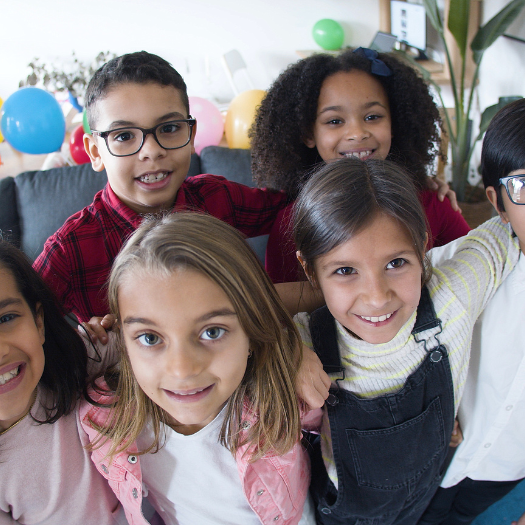2 min read
Fostering Connections: How SEL Supports Thriving English Learners
Rebecca Barron : Feb 11, 2024 9:50:00 AM

Imagine being dropped in a new land where you don’t know the language, culture, or school expectations. Feeling lost, struggling to express your needs, worried about fitting in. For many English language learners, this is the overwhelming experience as they transition into our classrooms.
How can we support these students beyond just academics?
While ELLs enrich our school communities with diversity, they face distinct socio-emotional challenges. As educators, we must nurture the whole child. Integrating Social Emotional Learning strategies into your teaching is an inclusive approach to help ELLs thrive socially, emotionally and academically.
Read on to discover the research and tangible ways SEL accelerates ELL growth.
The Power of SEL for ELLs
For ELLs plunged into an unfamiliar school environment, SEL provides stability amidst uncertainty. Explicit social-emotional instruction teaches essential life skills like managing emotions, relationship building, and responsible decision-making. Research shows SEL benefits ELLs by:
- Reducing anxiety and increasing engagement & class participation
- Accelerating language acquisition through peer interaction
- Building cross-cultural relationships and inclusivity
- Developing growth mindset and confidence to take academic risks
Promoting Cultural Awareness & Inclusion
Cultural barriers and misconceptions often isolate ELLs, challenging their sense of belonging. Proactively foster an inclusive classroom community where all students feel accepted and valued. Learn about ELLs' cultural backgrounds to understand their diverse needs and experiences. Address this head-on with activities like:
- Cultural icebreakers - Have students share stories from their family traditions.
- Assign cross-cultural pairs for peer language practice.
- Read diverse texts and have group discussions on culture and identity.
Teaching Growth Mindset
ELLs can internalize self-doubt and feel defined by their skill gaps. Teach students that challenges are opportunities for growth, not fixed limitations.
- Share stories of people who persevered through challenges.
- Have students reframe negative thoughts into growth mindset statements like “I don't know YET.”
- Praise effort and progress - not just achievement.
- Remind students that mistakes are opportunities to improve.
- Foster a class culture where challenges are embraced.
Promote ELL Leadership
Amplify ELLs’ unique abilities and empower them to share their skills confidently with peers through meaningful leadership opportunities.
- Let ELLs provide translations to guide their peers’ understanding.
- Have ELLs teach simple phrases in their native language through songs, chants or mini-lessons.
- Assign ELL reading buddies for English speakers learning a world language.
Leadership builds confidence and gives ELLs a sense of value in the classroom community.
Guide Group Work
Collaborative skills may not come naturally to ELLs. Model active listening, taking turns, and encouraging peers.
- Teach phrases like “Can you repeat that?” to advocate for needs.
- Use written group roles (i.e. Timekeeper, Fact-Checker) so ELLs can participate through nonverbal tasks.
- Debrief after group work to unpack social dynamics and improvement.
Foster Peer Connections
Help ELLs and peers find common ground and belonging through tailored icebreakers and ongoing buddy support systems.
- Try Two Truths and a Lie to help ELLs and peers find commonalities.
- Tailor get-to-know-you questions to prompt sharing of cultural traditions, foods, or interests.
- Discourage teasing of non-native pronunciation.
- Have a buddy system where each ELL partners with a fluent English speaker for support.
Unlocking ELL Potential through SEL
Supporting English Language Learners requires a holistic approach focused on the whole child. While advancing academics, we must also nurture social-emotional well-being. Integrating SEL strategies builds inclusive, enriching classrooms where ELLs can truly thrive.
Remember, every student brings unique strengths into your classroom. Implementing small moments of SEL each day allows you to discover those strengths. Guide students as they develop self-awareness, relationships, and a growth mindset. By ensuring a sense of belonging, you empower ELLs with the confidence and skills to engage fully. Meet their needs, foster empathy, and let their languages and cultures enhance instruction for all. By supporting academic and social-emotional growth, we unlock every ELL’s fullest potential.
Earn Continuing Education Units in Alludo!
Earn Continuing Education Units from Fresno Pacific University!



